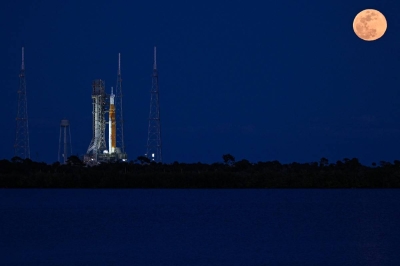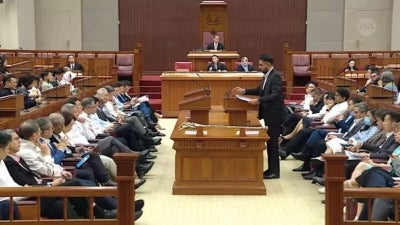China's efforts for Israeli-Palestinian solution praised
NUR ADLIN SYAHIRAH SAHMI
SHAH ALAM: China’s bid to play a more proactive role in finding a lasting solution to the Israeli-Palestinian conflict, made apparent during Beijing’s talks with visiting Palestinian President Mahmoud Abbas this week, offers new opportunities for resolving decades of discord in the Middle East, analysts say.
The China Daily reported that the Chinese effort should not be seen as a power play or competition with Washington, noting Beijing’s genuine desire to promote peace in an important region and help Palestine through a newly established strategic partnership.
"I believe China’s success in brokering rapprochement between Iran and Saudi Arabia in recent months has boosted Chinese confidence in playing a more active diplomatic role in the Middle East. "This role is highly welcomed by many parties in the Middle East," Muslim Imran, director at the Malaysia-based Asia Middle East Centre for Research and Dialogue, or AMEC, told China Daily.
He said the Palestinians in particular "have always maintained strong bilateral relations" with China and, therefore, "see any Chinese involvement positively".
As for the United States, its credibility is in question as it has "been seen as a biassed peace broker for years", Imran said.
"Although the Palestinian-Israeli conflict is probably more complicated than many other conflicts in the Middle East, the growing international influence that China has will probably help it play a positive role in resolving the conflict," he said.
Abbas was in Beijing from June 13 to 16 at the invitation of Chinese President Xi Jinping. During talks with the Palestinian leader, Xi put forward a three-point proposal for the settlement of the Palestinian question.
Xi noted that the Palestinian question "had caused great suffering to the Palestinian people", and called for swift justice.
Talking about his proposal, Xi said the fundamental solution was the "establishment of an independent state of Palestine that enjoys full sovereignty" on the basis of the 1967 borders and with East Jerusalem as its capital.
He said Palestine's economic and livelihood needs should be met, the international community needs to step up development assistance and humanitarian aid to Palestine, and it is important to keep the peace talks in the right direction.
Xi added that a large-scale, more authoritative, and more influential international peace conference should be convened to create conditions for the resumption of peace talks and contribute tangible efforts to help Palestinians and Israelis live side-by-side in peace.
"China stands ready to play a positive role in assisting Palestine in achieving internal reconciliation and promoting peace talks," Xi said.
"The signing of a strategic partnership between Palestine and China has (prompted some) scholars to reiterate the discourse of Beijing competing with the US in the (Middle East) region... It is not true," said Nagapushpa Devendra, a West Asia analyst and research scholar at the University of Erfurt in Germany.
"China is not competing with the United States in the Middle East. Beijing has its own goal and ambitions in the region which it wants to attain by adopting a contrasting policy (to that of) the US and bringing Middle Eastern countries into its diplomatic and economic orbit. Palestine is just one (more) country added to the list of China’s strategic partnerships," she said.
By prioritising efforts on the Palestinian front, China acknowledges the pivotal role Palestine plays in the region, said Belal Alakhras, a political analyst and Palestinian researcher at the University of Malaya in Malaysia.
He said the Chinese efforts have the potential to contribute to regional security and stability in the Middle East, and the fostering of trust among the people and states in the area.
Imran, from AMEC, said China should engage all active and important players within the Palestinian context and that inviting President Abbas to Beijing "was a good start". "The Palestinians stand to benefit from China’s engagement, where assistance can be offered in areas where others may lack the ability or willingness to contribute. This includes supporting the Palestinians in their quest to end the (Israeli) occupation and promoting self-reliance," said Alakhras from the University of Malaya.
"China’s initiatives in the Middle East have the potential to enhance the global multilateral landscape, ensuring that this economically and politically important region is not subject to the meddling of other powers, as witnessed in past wars and colonial invasions by Western powers," he added.
Download Sinar Daily application.Click Here!














